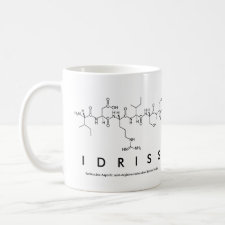
Authors: Rhouati A, Bakas I, Marty JL
Publication date: 2019
Chapter title: MIPs and Aptamers as Artificial Receptors in Advanced Separation Techniques.
Chapter number: 26
Page numbers: 825-857.
DOI: 10.1002/9781119422587.ch26
Book title: Handbook of Smart Materials in Analytical Chemistry
Editors: de la Guardia M, Esteve-Turrillas FA
Publisher: Wiley
ISBN: 9781119422587
Series title: Wiley Online Books
Abstract: Quality control constitutes a major challenge in food security and human health protection. Recent advances in sample preparation techniques, such as extraction, concentration, and separation have led to an accurate monitoring of hazardous compounds in food. Among these techniques, solid phase extraction (SPE) is rapidly developing by providing innovative materials such as molecular recognition sorbents. The performance of these selective tools is majorly influenced by the affinity receptor used to bind the target. As an alternative to enzymes and antibodies, bio-inspired recognition elements have attracted much attention in recent years. The main advantage of these molecules is their simple and low cost production. They are chemically synthesized and based on inorganic matrices (molecularly imprinted polymers), nucleic acids (aptamers), or polypeptides. Characterized by high stability, selectivity, and affinity, artificial receptors have been widely investigated in the purification and detection of food contaminants. We focus in this chapter on the use of MIPs and aptamers in food sample preparation, in particular on their application in solid phase extraction
Template and target information: review - MIPs in separation
Author keywords: Aptamers, MIPs, sample preparation, solid phase extraction, separation, food analysis



Join the Society for Molecular Imprinting

New items RSS feed
Sign-up for e-mail updates:
Choose between receiving an occasional newsletter or more frequent e-mail alerts.
Click here to go to the sign-up page.
Is your name elemental or peptidic? Enter your name and find out by clicking either of the buttons below!
Other products you may like:
 MIPdatabase
MIPdatabase









